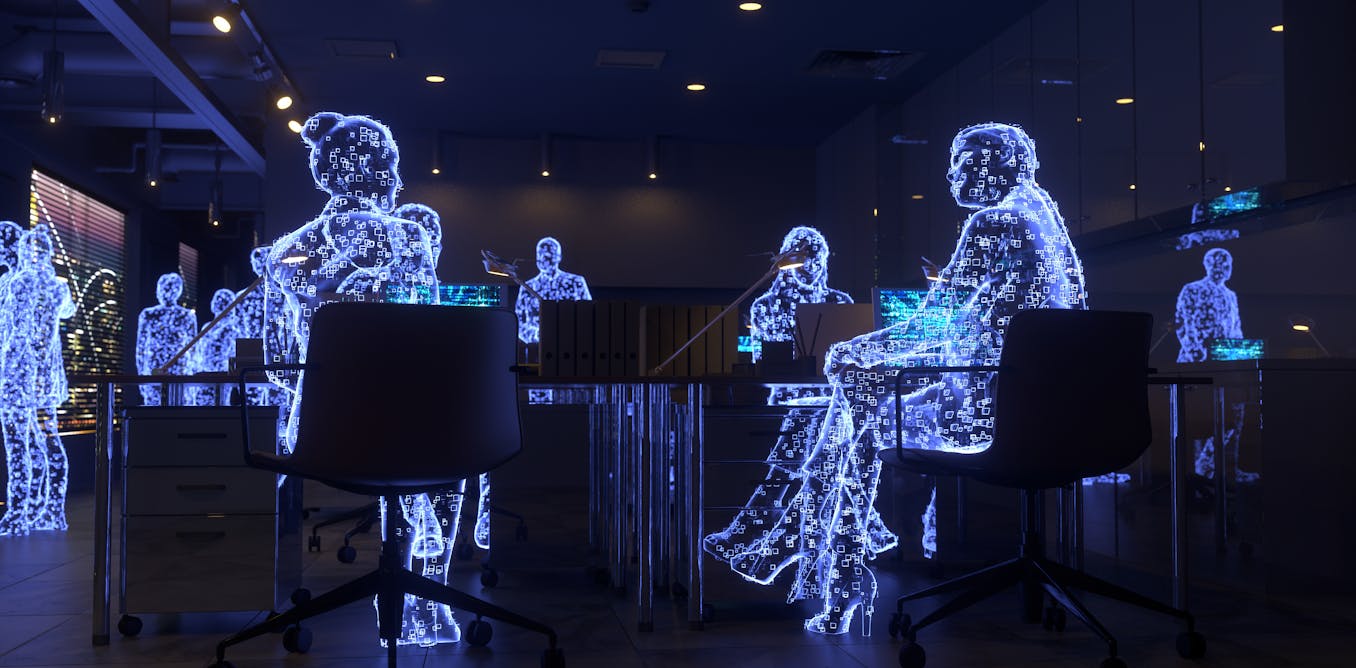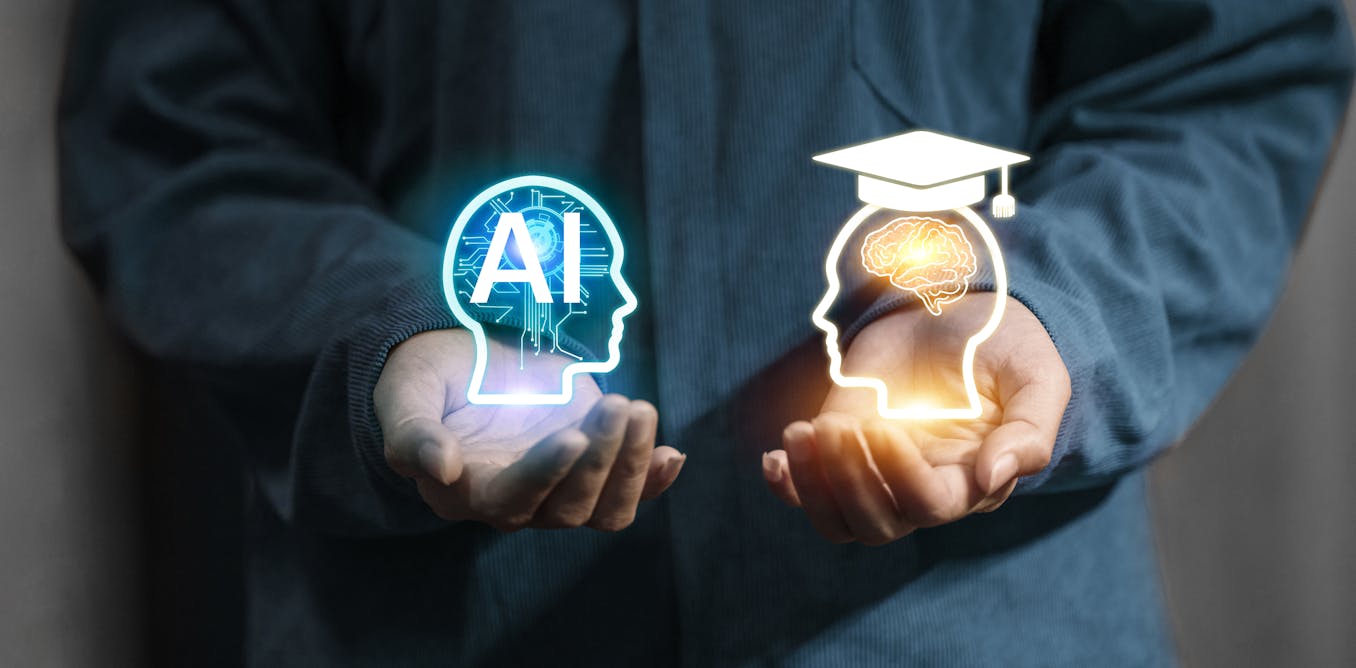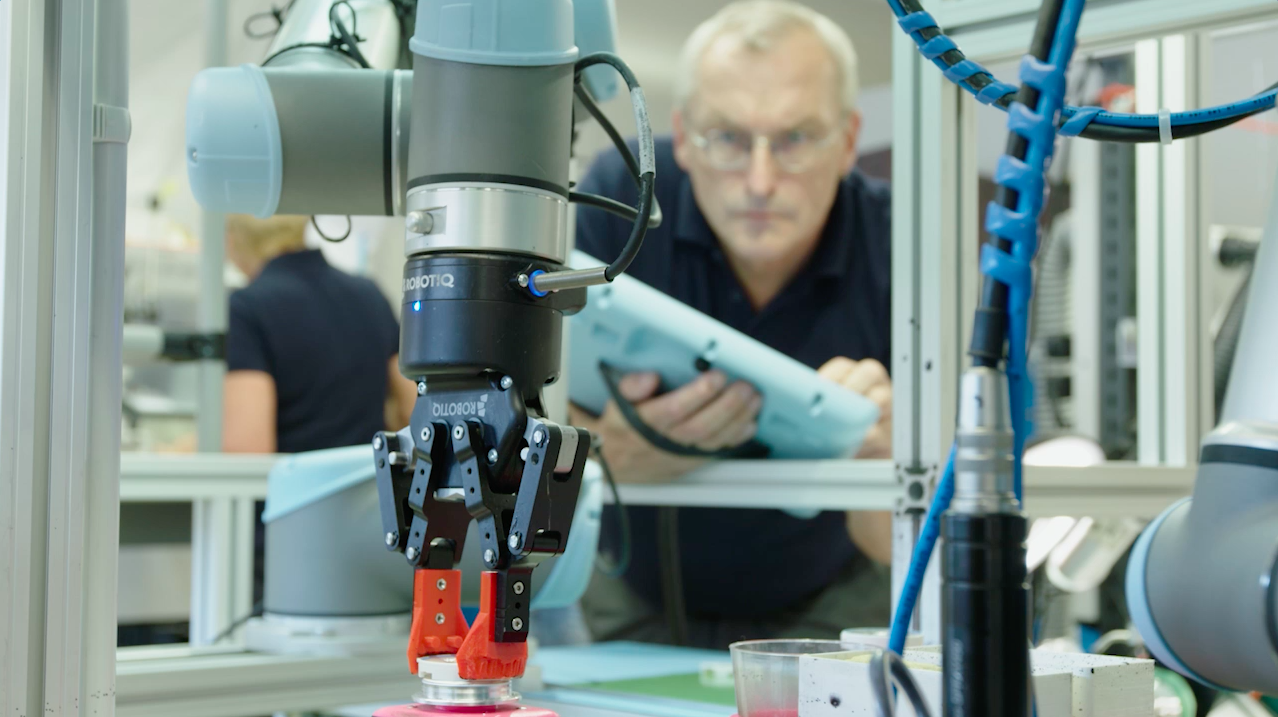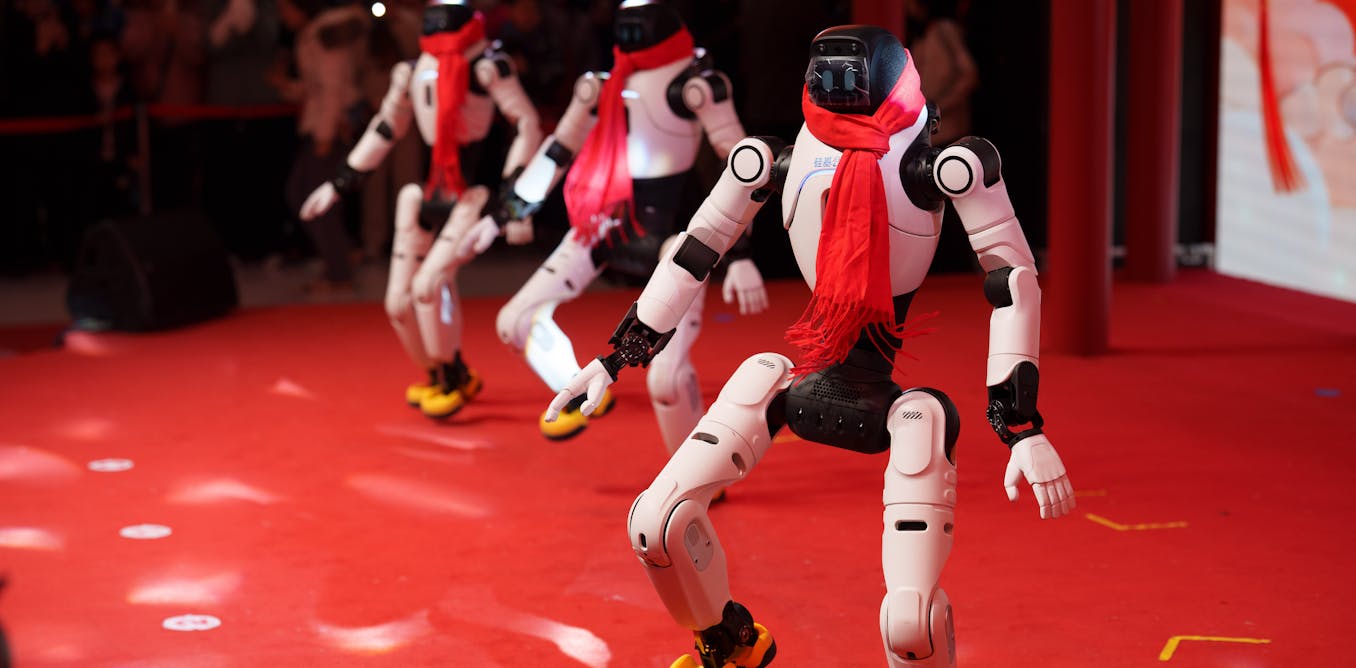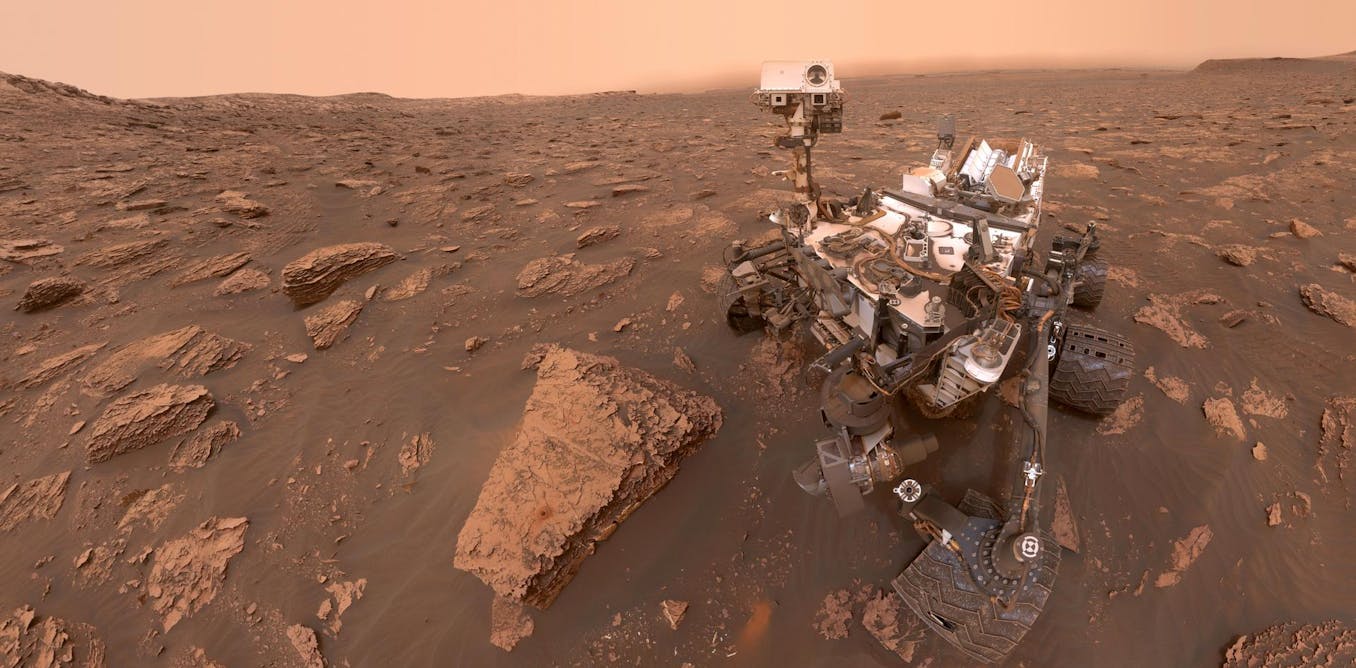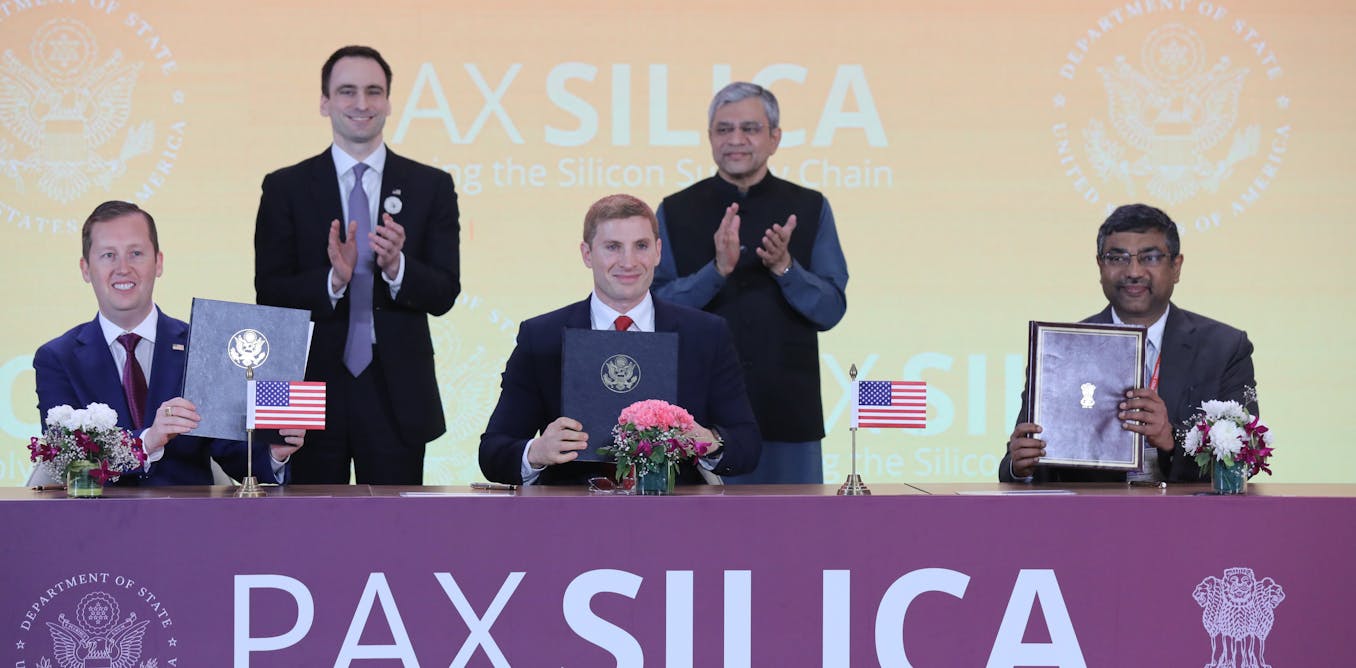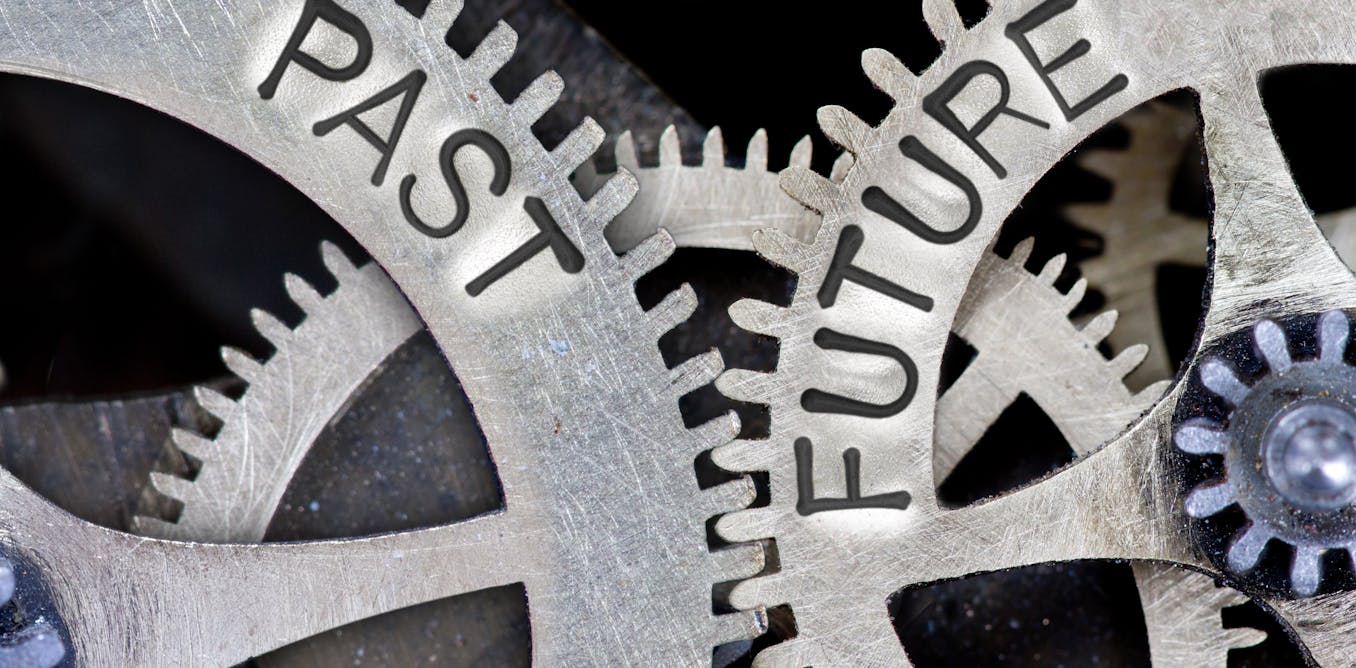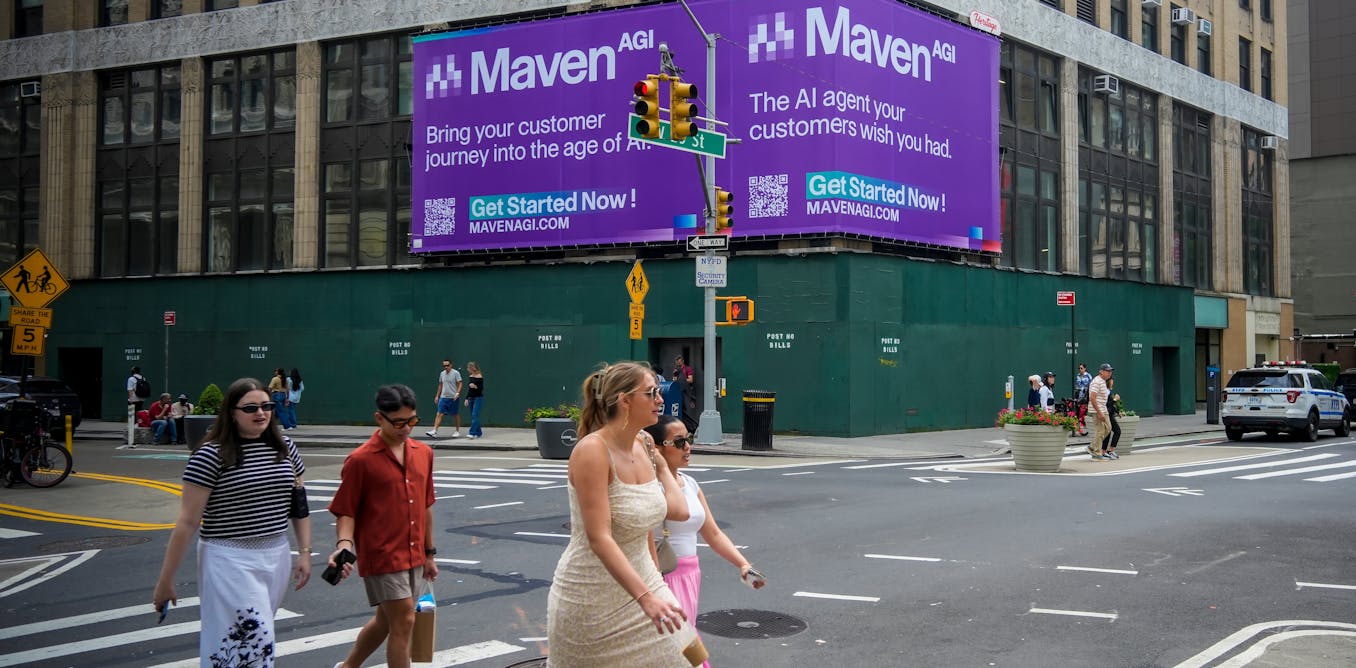News briefs for the week take a look at BMW announcing the first-ever Factory in a Box as an add-on to its production lines, cobots braving gamma rays to make medical radioisotopes, highly dexterous, deep-sea cobots saving human divers from harsh environments, ABB does it again with yet another acquisition for AMR leadership, and Mujin Robotics and Accenture partner in hope of jumpstarting robot-AI automation in Japan.
Factory in a Box
Mobile manufacturing just got an interesting boost in what’s being hailed by carmaker BMW as a Factory in a Box, which is literally a small, robot-driven factory (with one or more industrial robots or cobots) that can easily be crated up and shipped anywhere on the globe.
First conceived of and developed in Sweden in 2007, Factory-in-a-Box Solutions for Availability and Mobility of Flexible Production Capacity, was a solution for the realization of “mobile and reconfigurable production capacity on demand.” Three key features of the system were mobility, flexibility, and speed.
.jpeg?width=440&height=213&name=1704978594749%20(1).jpeg) At the 10th Conference on Learning Factories, in 2020, Factory in a Box, in addition to mobile manufacturing, was presented as “a model factory—a highly engaging and effective learning experience” for training employees in new and novel manufacturing procedures. Instead of many employees traveling to a manufacturing site, the site came to them. The results were impressive, showing improved recall from participants, and improved learning outcomes as participants learn how and why to apply new tools and techniques not just what they are.”
At the 10th Conference on Learning Factories, in 2020, Factory in a Box, in addition to mobile manufacturing, was presented as “a model factory—a highly engaging and effective learning experience” for training employees in new and novel manufacturing procedures. Instead of many employees traveling to a manufacturing site, the site came to them. The results were impressive, showing improved recall from participants, and improved learning outcomes as participants learn how and why to apply new tools and techniques not just what they are.”
BMW recently (2024) used the concept for a real-world application by producing the world’s first Factory in a Box for its door assembly production line (see video).
The carmaker claims: “Factory in a Box, the world’s first modular plug & play process equipment for door sealing applications. Developed in collaboration with AyTec Automation, it ensures a quick startup at our plants.”
Cobots, labs & gamma rays
Cobots have been working their way into a wide range of laboratories and demonstrating amazing results in nearly every application. One of the latest is at Argonne National Laboratory (Chicago) on a federal government project to see how best to safely speed up the manufacture of medical radioisotopes by incorporating cobots, artificial intelligence (AI) and machine learning (ML).
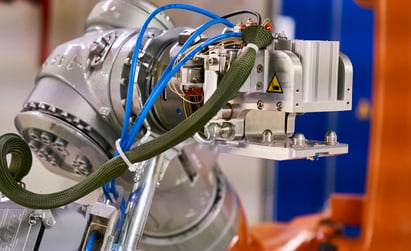 Medical radioisotopes are those radioactive materials used particularly for imaging, diagnosis and therapy of various medical conditions. With millions of radioisotope treatments annually needing preparation, slow, expensive, and oftentimes dangerous manufacturing processes have been the norm. Some radioisotopes are still made based on technologies used since the 1940s.
Medical radioisotopes are those radioactive materials used particularly for imaging, diagnosis and therapy of various medical conditions. With millions of radioisotope treatments annually needing preparation, slow, expensive, and oftentimes dangerous manufacturing processes have been the norm. Some radioisotopes are still made based on technologies used since the 1940s.
In practice, a radioisotope made of Iodine-131 travels throughout the body and localizes in the thyroid gland. Because it is radioactive, its presence can be detected. It’s a radioactive tracer that detects a goiter, which is an irregular growth of the thyroid gland.
As a result, in many cases, the demand for these emerging isotopes is far beyond the available supply. This limits the rate of progress in developing these advanced cancer treatments. That’s why the integration of cobots and artificial intelligence into the production of radioisotopes holds so much promise.
As Argonne physicist Jerry Nolen sees it: “Just by gaining the ability to do the manipulation of the sample from across the room means that we can safely handle samples up to 10 times as radioactive. This dramatically increases our ability to produce these valuable and necessary isotopes.”
6-axis, subsea cobots
Some cobots are being built for subsea adventures, like those from the relatively new (2016) Sydney, Australia-based Reach Robotics. 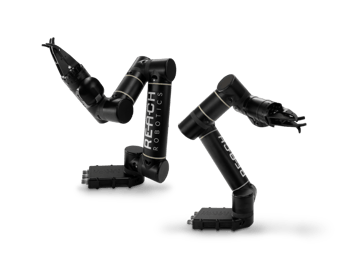 The Reach X, for example, is a watertight, 6-axis, underwater manipulator with 3D vision that can dive to 1,000 feet and has end-effector gripping accuracy of 0.39 of an inch (<1cm). …It’s dexterous gripper skills can swiftly unzipper a duffle bag on the ocean floor.
The Reach X, for example, is a watertight, 6-axis, underwater manipulator with 3D vision that can dive to 1,000 feet and has end-effector gripping accuracy of 0.39 of an inch (<1cm). …It’s dexterous gripper skills can swiftly unzipper a duffle bag on the ocean floor.
With 75% of the globe’s surface covered in water, and with the world’s largest island/continent—Australia—surrounded by same, Aussie subsea cobots should have an odds-on chance at doing fairly well as commercial products. And indeed, the company has risen quickly. Between its two founders (2016) and today’s 50 employees (2024), Reach Robotics has built a client list of private corporations, government, and higher education, in over a dozen vertical industries.
A Reach specialty is that its cobot arms are purposefully engineered for “ultra-subsea dexterity” so that they can perform tasks normally meant for human divers. According to its founders, that’s precisely the company’s mission: “extending human reach into harsh environments by creating tough, durable, advanced manipulation and perception systems.”
ABB Robotics does it AGAIN!
Suddenly, ABB Robotics is an autonomous mobile robot (AMR) phenom! And all of it since 2018! While just since last week, it TWICE jumped up a few notches in leadership for new-age mobility in “smart” AMRs. Timely plan brilliantly executed.
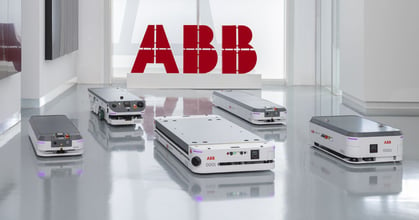 In addition to the AMRs, ABB gets a side benefit: ABB now has a mobile platform for its cobots.
In addition to the AMRs, ABB gets a side benefit: ABB now has a mobile platform for its cobots.
Last week, What’s New in Robotics? reported on the ABB acquisition trifecta of Intrion (2018), and ASTI (2021), that vaulted ABB into AMR prominence; and then the January addition of Sevensence (2024) vaulting it further into leadership in “smart” AMRs.
Now comes this week’s acquisition of software developer MeshMinds (2024) for AI, Industrial IoT, and machine vision. Together, Sevensense and MeshMinds will build out a new R&D hub for innovative automation. Those two will be joined by Austrian-based Bernecker & Rainer Industrie-Elektronik (B&R), acquired by ABB in 2017 that produces industrial PCs and factory automation devices designed to increase productivity.
Growth through acquisition for ABB’s Robotics & Discrete Automation business is how the company intends to catapult itself into leadership position in what ABB calls “next generation flexible automation”.
Sami Atiya, president, ABB Robotics and Discrete Automation Business was more than pleased: “AI-powered robotics and automation have the power to transform industries,” he said, “providing businesses with greater flexibility and intelligence amidst critical global trends and workforce challenges.”
ABB’s overall boss since 2020, Björn Rosengren, promised more acquisitions: “Some of the company’s growth will come through acquisitions [maybe 5 to 10 a year] notably small to medium-sized ones to help divisions strengthen their market positions.”
AMR’s have been much sought after at ABB. The market for autonomous mobile robots (AMRs) is expected to grow by around 20% per year up to 2026, according to ABB estimates, expanding from $5.5 billion in 2023 to $9.5 billion by 2026.
This rate is faster than the one anticipated for conventional fixed robots, where ABB sees annual growth of 8%.
Mujin Robotics and Accenture to jumpstart automation in Japan
Recent research in Nature and from the Oxford Martin School portray Japan’s industrial automation efforts as ranging anywhere from lagging to stagnating. Graeme Mcdonald at Citigroup points out the best automated factories in Japan are those that make robots: “Production at some of Japan’s leading robotics companies is already nearly fully automated.” But automation doesn’t extend much beyond robotics.
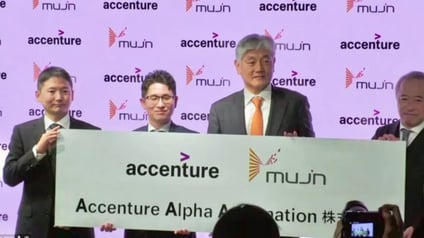 Now that artificial intelligence (AI) and machine learning (ML) have begun to converge with robotics, Japan’s limitations have become glaring: Japanese robotics lags as AI captures global attention, reads a header in a recent Nature article.
Now that artificial intelligence (AI) and machine learning (ML) have begun to converge with robotics, Japan’s limitations have become glaring: Japanese robotics lags as AI captures global attention, reads a header in a recent Nature article.
“AI and robotics are not separable,” says Minoru Asada, an emeritus roboticist at Osaka University. “Big changes happened, and we could not catch up.”
The consensus on Japan, robots, AI, and automation is that the “country’s automation research might need a renewed focus.” Enter Mujin Robotics and Accenture partnering with a plan to establish a “new paradigm” in automation in Japan. Mujin Robotics is probably Japan’s best example of an AI-driven robotics vendor, and of course, Accenture is a Dublin-based information technology services and consulting giant to mostly the Global Fortune 500, with revenues for 2023 of $64.1 billion. The article in AIThority states it plainly: Accenture and Mujin Establish Joint Venture to Bring AI and Robotics to the Manufacturing and Logistics Industries.
The new venture, called Accenture Alpha Automation, will help Japanese companies automate their management infrastructure with data-driven solutions that seamlessly combine operational data from manufacturing and logistics operations with management data. The joint venture is owned 70% by Accenture and 30% by Mujin.
“Mujin provides intelligent automation solutions for industrial sites. Its intelligent robotics platform enables companies to deploy industrial robotics systems without the typical complex advance settings and integration, including motion settings and peripheral equipment, often required for other robotics systems.”
With its East Asian competitors, China and Korea, well ahead of Japan in AI convergence, Accenture Alpha Automation will need a mighty effort to get Japan back into the game.
![]()

The post “What’s New in Robotics? 02.02.2024” by [email protected] (Tom Green) was published on 02/02/2024 by blog.robotiq.com






